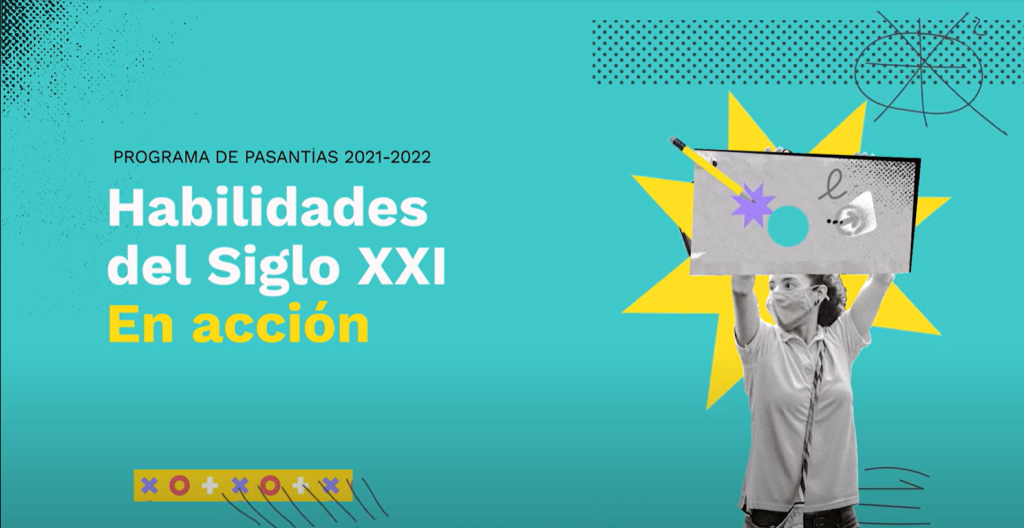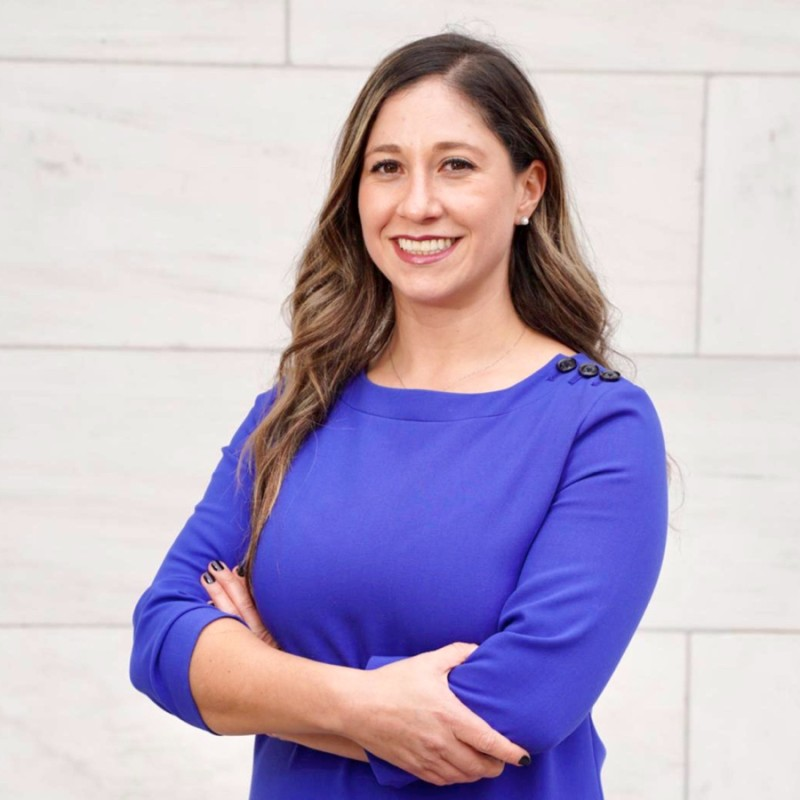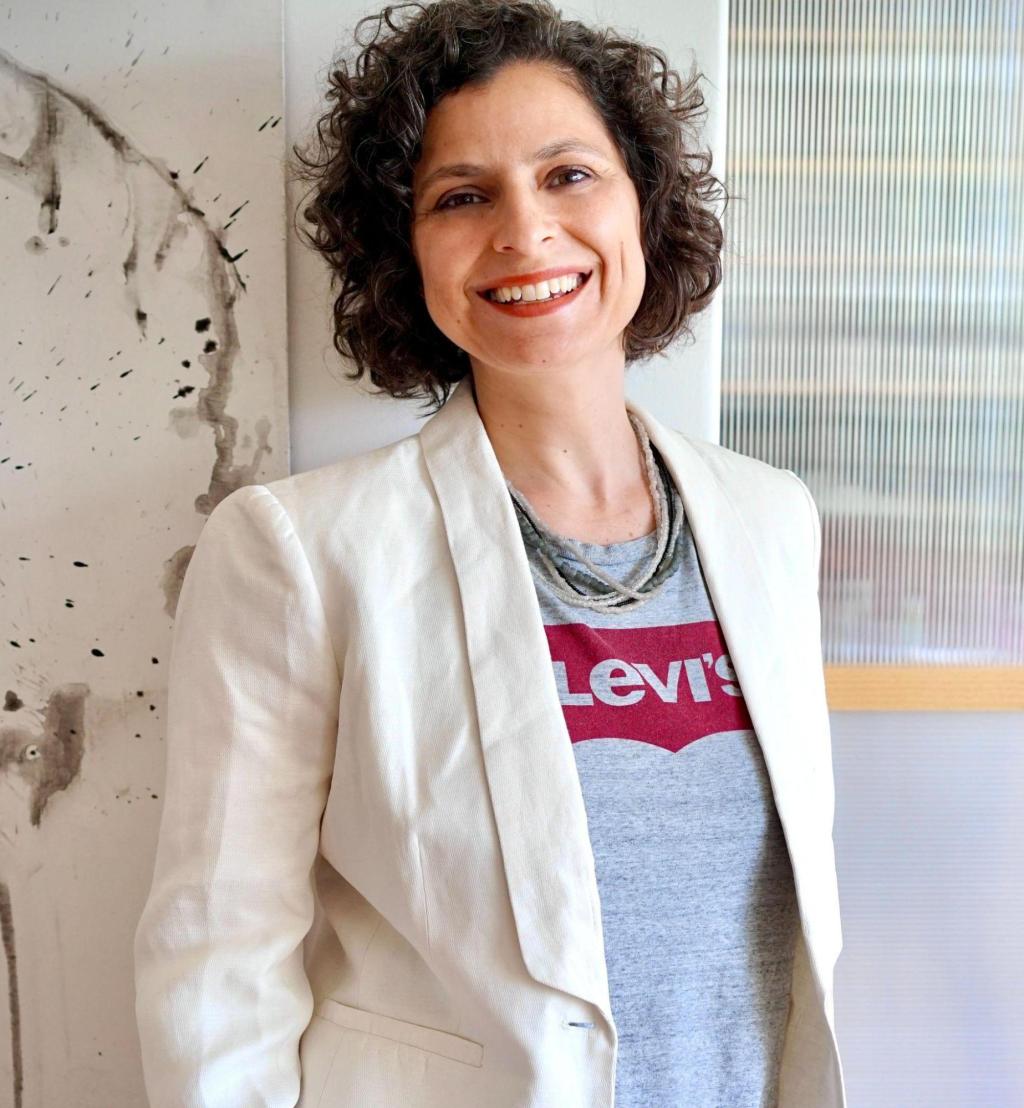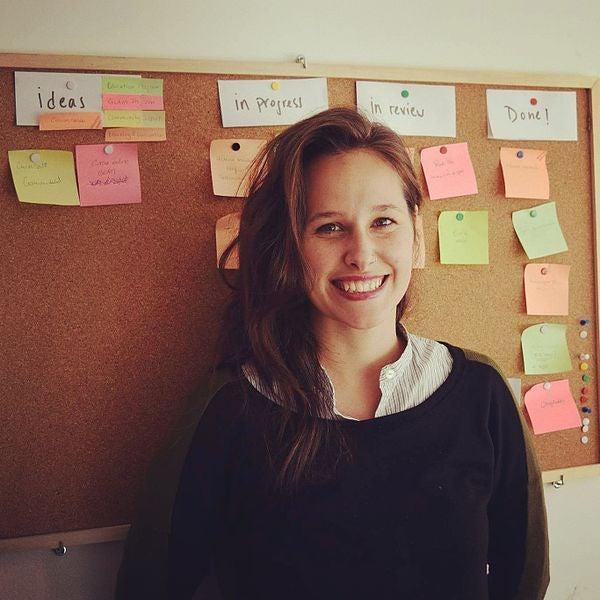
We live in an age of massive knowledge and the 21st century offers challenges such as misinformation, cyberbullying, online grooming (online sexual harassment and abuse), and the production of open knowledge, growing at unstoppable speed. In 2022 alone, the total data consumed worldwide was 97 zettabytes, 18 more than in 2021. This is partly because Internet users are not only consumers, but producers as well. And it’s a fact that access to unlimited amounts of information paired with insufficient media literacy skills has a significant impact on young people.
In Latin America and the Caribbean there’s over 165 million teen-age and youth people. 110 million of those are afflicted by unemployment, informality and inactivity. Most lack the necessary skills to successfully navigate social and work life. The skills needed to deal with permanent change, to have healthy and productive lives are essential. Concepts like perseverance, collaboration, digital citizenship, critical thinking and communication are key to face new challenges. “Reducing the skill gap youth from different socioeconomic backgrounds is one of the most powerful ways to fight inequality”, so says Ilan Goldfajn, president of the Inter-American Development Bank (IDB) in their opening speech celebrating the International Day of Education on the subject of “Skills for Youth. Investing in the Latin American and the Caribbean Human Capital”.
Within this context, nourishing digital citizenship and global competence in students allows the youth to develop in a responsible, informed, safe, ethical, free and participative way, while exercising and recognizing their digital rights and understanding its impact in their personal lives and surroundings.
Why is digital citizenship more relevant now than ever?
Digital citizenship becomes fundamental in the 21st Century because it promotes rights and responsibilities in online spaces as well as social inclusion. According to UNESCO, digital citizenship is a set of competences that “allow people to access, understand, analyze, produce and use the digital environment in a critical, ethical and creative way”
It’s these considerations that led PISA (Programme for International Student Assessment), a global standard to measure the quality of educational results, to include “global competence” in their latest evaluation of 66 school systems. As Andreas Schleicher mentions, in order to have good results in evaluations, students should demonstrate that they are able to mix their knowledge of the world with critical reasoning, and that they are able to adapt their behavior and communications to interact with people from different traditions and cultures.
Education represents a vital tool to help the youth to develop this global competence and adapt to virtual learning. This is why organizations such as the Wikimedia Foundation, Wikimedia Argentina and the IDB have made a priority of offering courses so that students can grow their 21st Century skills in a critical way.
Digital citizenship and Wikimedia projects in the region
Wikipedia is, in both quantity and quality, the largest free encyclopedia in history. Its main characteristic is its massive usage and the ability to be updated in near real time. It started as an open editing project to speed up and add flexibility to the development of an encyclopedia and it has become one of the main sites to consult information on the internet. According to the latest analyses, the Spanish-language Wikipedia has about 225 active editors (those with an average of 10 daily edits) and about 1050 sporadic editors (average of 2 daily edits). It receives about 31 million daily views—about 374 per second—and the 1,000 most visited articles see about 1,500 visits each. This encyclopedia hosts over 1,836,900 articles, with about 400 new articles being created each day—about 12,000 per month.
In July 2022 the project titled “Habilidades del siglo XXI en acción: Ciudadanía digital y proyectos Wikimedia” (21st Century skills in action: Digital Citizenship and Wikimedia Projects)—a joint effort between the IDB, the Wikimedia Foundation and Wikimedia Argentina—came to an end, after strengthening the skills of 216 young people from 18 countries in Latin America, focusing on skills for life, digital citizenship and management of Wikimedia project. This program helped connect not just people, but information and communication skills among peers and organizations.
This project was born within the framework of the 21st Century Skills Coalition, an IDB-led initiative to promote multi-sector associations for the development and strengthening of transversal skills in Latin America and the Caribbean. The Wikimedia Foundation joined the Coalition in May 2020.
The 21st Century Skills are a set of skills, abilities and learning dispositions identified as necessary for people’s development—both in their technological and societal aspects—in a rapidly changing, digital society. Within this framework, Wikimedia Argentina developed in its digital campus a free, 4-week online course for students to develop and strengthen their skills on free knowledge and usage of Wikimedia projects, all from the perspective of digital citizenship.
As a result, we expanded and improved 189 articles on the Spanish language Wikipedia on topics around history, literature, natural and social sciences, among others. Some of the articles improved include (links in Spanish): Digital gender gap, Digital citizenship, Environmental education, Intercultural bilingual education, Virtual learning environment, Impact of the COVID-19 pandemic on education, United Nations Framework Convention on Climate Change, Communitarian feminism, and Gender equality. Participants also uploaded over 200 images of their own authorship to Wikimedia Commons under free licenses. These images are related to the history and local contexts for the aforementioned articles, so that they could be illustrated on the Spanish-language Wikipedia. This online course included topics such as Wikipedia as a search tool, critical writing, content gaps in the Wikimedia projects and developing a project proposal within the Wikimedia projects coming from the participants themselves.
Internship and Open Knowledge in Spanish on Wikipedia
Parallel to these activities, between April and July 2022, Wikimedia Argentina led the first Internship Program (link in Spanish) within the Wikimedia movement, where 10 students were selected to receive a scholarship to work 3 months alongside the affiliate Chapters and Usergroups in the region, as well as within the Wikimedia Foundation itself. In these videos we see some of the testimonials from the interns and the host institutions that joined the project.
These are some of the projects and activities where the Interns collaborated actively with the institutions:
- Wikimedia Argentina: hosted two interns to their Educational and Human Rights Program and the Culture and Open Knowledge Program. In the former, Laura Ibarra Molas helped develop the online course “Wikipuentes” (lit. Wiki-bridges), which aims to train teachers to implement Wikimedia projects in their classrooms. She also helped to design and implement the Wikipedia at the University Program. On the latter, Fabián Mamani joined in the development of several projects with Popular Libraries in Argentina, as well as with the Wikimedia Argentina digitization project.
- Wikimedia Colombia: hosted Andrés David Barragán Hernández who joined in the #WikiParaLosDerechosHumanos (#WikiForHumanRights) 2022 campaign, through workshops and awareness campaigns.
- Wikimedia México: hosted Esther Bravo Govea who directly contributed to the Education Program in developing workshops and implementation of the #1Bib1Ref 2022 campaign.
- Wikimedia Chile: hosted Francisco Navarrete, who assisted in coordinating volunteer work in heritage alongside Wikimedia Commons, Wikimedia Chile and the National Youth Institute.
- Wikimedia Venezuela: hosted Leonardi José Fernandez Fernandez, who helped planning workshops about Wikipedia in the Guajira peninsula. He also helped develop the indigenous languages portal in Wikimedia, as well as creating the Wayuunaiki language Wikipedia.
- Wikimedistas de Uruguay: hosted two interns, Noelia Soledad Irace Reina and Rafael Antonio Montes Escobar. Both helped respectively in projects on technological exploration alongside the local Wikimedia community, including Wikidata and the translation tools on Wikipedia. They also helped develop the local WikiForHumanRights 2022 campaign, focusing on the right to a clean, healthy environment.
- Wikimedistas de Bolivia: hosted Karen Barradas, who helped develop the Let’s Read Wikipedia program locally, as well as working in training teachers on Wikimedia projects in several universities in Bolivia.
- Wikimedia Foundation: hosted Anielka Lisette Oviedo Zavala who helped the Community Resources Team at the Foundation, working on designing peer learning methodologies within the “Let’s Connect” program.
This alliance between the IDB, the Wikimedia Foundation and Wikimedia Argentina managed, through our joint effort, to successfully boost an innovative learning process in which several young people in Latin America and the Caribbean were able to access 21st Century skills, exercise their digital citizenship and expand free knowledge in the region. We wish for further development of free knowledge in Latin America and the Caribbean, hoping that this is but the first of many collaborative projects where more people, mostly young people, can become full digital citizens and freely share in the sum of all knowledge. Let’s keep in touch through our blog series on education and #habilidades21. You can read the first entry in the series (in Spanish) here. Download The Future is Now and keep up with the latest publications on our website here!
About the authors

Liliana Serrano
Liliana Serrano Pájaro is a consultant at the Inter-American Development Bank (IDB) at the “21st Century Skills” initiative, while also supporting the implementation of formative projects in Colombia and the region. Her experience includes coordinating cooperation programs at the Organization of American States (OAS) for Latin America and the Caribbean; expanding the OAS Consortium of Universities in Latin America, working alongside governments, universities and other higher-education institutions. Her experience also extends to supporting regional innovation initiatives promoting the use of Information and Communication Technologies in education. Liliana has a degree in Social Communication and Journalism from the Universidad de la Sabana in Colombia, is certified in Design of Alliances for Social Impact by the University of Georgetown in Washington, D.C. and has over nine years worth of experience in communications and education programs for Latin America and the Caribbean.

Brisa Ceccon
Professional in International Cooperation with over 15 years worth of experience as project manager and facilitator of collaborative processes dealing in subjects like migration, strengthening the civil society, food sovereignty, digital citizenship and free knowledge.
Nowadays, she’s the Senior Regional Partnerships Manager for Latin America and the Caribbean at the Wikimedia Foundation.
She has a Bachelors and Masters degree in International Relationships by the National Autonomous University of Mexico (UNAM) and specialized studies in Global Governance by the German Institute of Development and Sustainability (IDOS).

Luisina Ferrante
Coordinator of the Education and Human Rights Program of the Wikimedia Argentina Chapter since 2016. Teacher of Secondary- and Higher-Education in History (University of Buenos Aires). Diploma in Education and New Technology (Pent-FLACSO). Masters degree in Human Rights and Social Policies (National University of General San Martin). Doctorate in Education and Society (University of Barcelona).

Can you help us translate this article?
In order for this article to reach as many people as possible we would like your help. Can you translate this article to get the message out?
Start translation